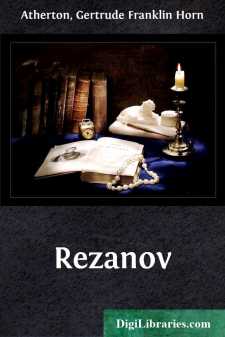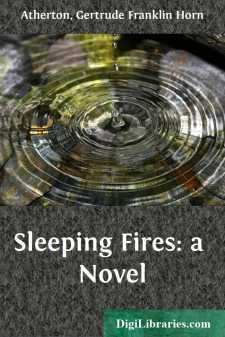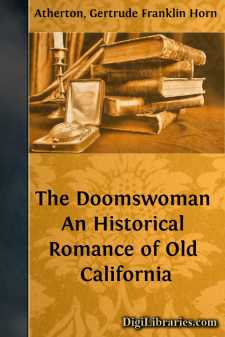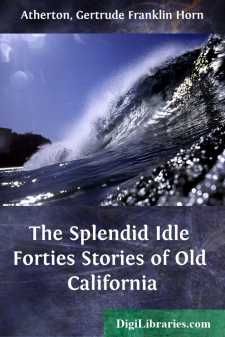Categories
- Antiques & Collectibles 13
- Architecture 36
- Art 48
- Bibles 22
- Biography & Autobiography 813
- Body, Mind & Spirit 142
- Business & Economics 28
- Children's Books 17
- Children's Fiction 14
- Computers 4
- Cooking 94
- Crafts & Hobbies 4
- Drama 346
- Education 46
- Family & Relationships 57
- Fiction 11829
- Games 19
- Gardening 17
- Health & Fitness 34
- History 1377
- House & Home 1
- Humor 147
- Juvenile Fiction 1873
- Juvenile Nonfiction 202
- Language Arts & Disciplines 88
- Law 16
- Literary Collections 686
- Literary Criticism 179
- Mathematics 13
- Medical 41
- Music 40
- Nature 179
- Non-Classifiable 1768
- Performing Arts 7
- Periodicals 1453
- Philosophy 64
- Photography 2
- Poetry 896
- Political Science 203
- Psychology 42
- Reference 154
- Religion 513
- Science 126
- Self-Help 84
- Social Science 81
- Sports & Recreation 34
- Study Aids 3
- Technology & Engineering 59
- Transportation 23
- Travel 463
- True Crime 29
Gertrude Franklin Horn Atherton
Gertrude Franklin Horn Atherton (1857-1948) was an influential American writer known for her vivid portrayals of California life and strong, unconventional female characters. Her most famous works include "The Californians" (1898) and "Black Oxen" (1923), the latter of which was adapted into a silent film. Atherton's writing was noted for its bold themes and innovative narrative style, making her a prominent figure in early 20th-century American literature.
Author's Books:
Sort by:
INTRODUCTION A long list of works Gertrude Atherton has to her credit as a writer. She is indisputably a woman of genius. Not that her genius is distinctively feminine, though she is in matters historical a passionate partisan. Most of the critics who approve her work agree that in the main she views life with somewhat of the masculine spirit of liberality. She is as much the realist as one can be who...
more...
"If we receive this Lady Mary Montgomery, we shall also have to receive her dreadful husband." "He is said to be quite charming." "He is a Representative!" "Of course they are all wild animals to you, but one or two have been pointed out to me that looked quite like ordinary gentlemen—really." "Possibly. But no person in official life has ever entered my house. I...
more...
CHAPTER I I Price Ruyler knew that many secrets had been inhumed by the earthquake and fire of San Francisco and wondered if his wife's had been one of them. After all, she had been born in this city of odd and whispered pasts, and there were moments when his silent mother-in-law suggested a past of her own. That there was a secret of some sort he had been progressively convinced for quite six...
more...
I Nevis gave of her bounty to none more generously than to John and Mary Fawcett. In 1685 the revocation of the Edict of Nantes had sent the Huguenots swarming to America and the West Indies. Faucette was but a boy when the Tropics gave him shelter, and learning was hard to get; except in the matter of carving Caribs. But he acquired the science of medicine somehow, and settled on Nevis, remodelled his...
more...
WHAT DREAMS MAY COME. THE OVERTURE. Constantinople; the month of August; the early days of the century. It was the hour of the city's most perfect beauty. The sun was setting, and flung a mellowing glow over the great golden domes and minarets of the mosques, the bazaars glittering with trifles and precious with elements of Oriental luxury, the tortuous thoroughfares with their motley throng, the...
more...
I There was no Burlingame in the Sixties, the Western Addition was a desert of sand dunes and the goats gambolled through the rocky gulches of Nob Hill. But San Francisco had its Rincon Hill and South Park, Howard and Fulsom and Harrison Streets, coldly aloof from the tumultuous hot heart of the City north of Market Street. In this residence section the sidewalks were also wooden and uneven and the...
more...
I. It was at Governor Alvarado's house in Monterey that Chonita first knew of Diego Estenega. I had told him much of her, but had never cared to mention the name of Estenega in the presence of an Iturbi y Moncada. Chonita came to Monterey to stand godmother to the child of Alvarado and of her friend Doña Martina, his wife. She arrived the morning before the christening, and no one thought to tell...
more...
THE PEARLS OF LORETO I Within memory of the most gnarled and coffee-coloured Montereño never had there been so exciting a race day. All essential conditions seemed to have held counsel and agreed to combine. Not a wreath of fog floated across the bay to dim the sparkling air. Every horse, every vaquero, was alert and physically perfect. The rains were over; the dust was not gathered. Pio Pico,...
more...
BLACK OXEN I "Talk. Talk. Talk.… Good lines and no action … said all … not even promising first act … eighth failure and season more than half over … rather be a playwright and fail than a critic compelled to listen to has-beens and would-bes trying to put over bad plays.… Oh, for just one more great first-night … if there's a spirit world why don't the ghosts of dead...
more...
CHAPTER I I The long street rising and falling and rising again until its farthest crest high in the east seemed to brush the fading stars, was deserted even by the private watchmen that guarded the homes of the apprehensive in the Western Addition. Alexina darted across and into the shadows of the avenue that led up to her old-fashioned home, a relic of San Francisco's "early days,"...
more...











